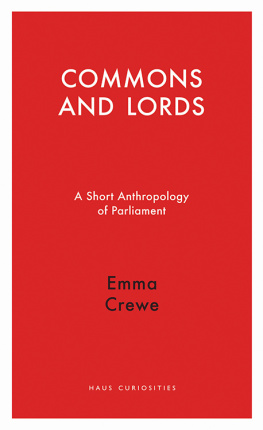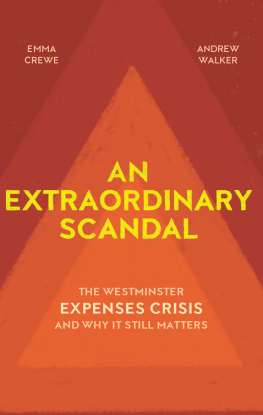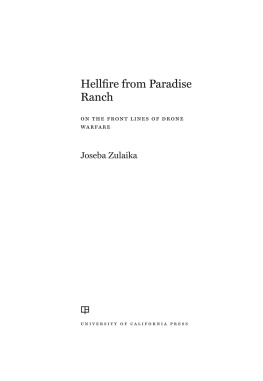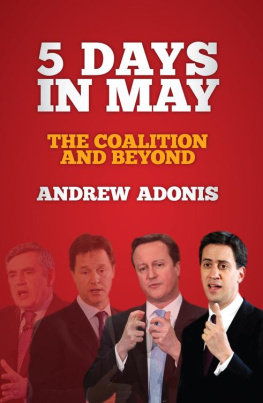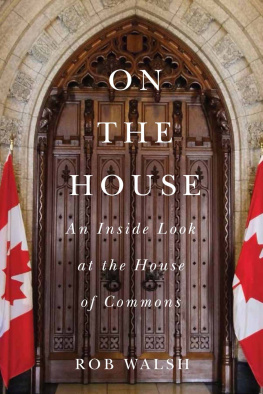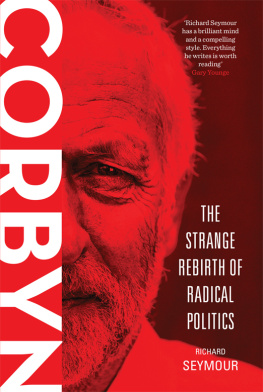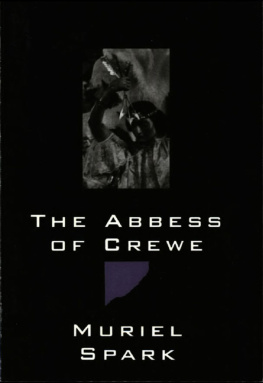About the Author
Emma Crewe is an anthropologist who has taught at the University of Sussex, SOAS (University of London), and the University of Hertfordshires Business School. She has worked as a policy adviser, senior manager and a trustee within international NGOs and grant-makers working on technology, inequality, and child rights. Her ethnographic research focuses on organisations, especially NGOs and parliaments in the UK, Eastern Africa and South Asia. She has published widely, including: Whose Development? An Ethnography of Aid (with E. A. Harrison, Zed Press, 1998), Lords of Parliament: rituals, manners and politics (Manchester University Press, 2005), and House of Commons: an anthropology of MPs at work (Bloomsbury, 2015).
Parliamentary curiosities
If an anthropologist from another world were let loose inside the Houses of Parliament what would she see? Once beyond security and into the fairy-tale neo-Gothic Palace of Westminster, she might gingerly make her way into the Lords, past soaring arches, sculpted dead kings sprouting from mouldings, painted historical tableaux on walls, and into the cathedral-like chamber. She might catch the venerable Earl Ferrers rising from a red bench saying:
I see that the noble Lord takes great pride in his name. He really should not do so because the only reason that his predecessor was made Lord Henley was to ensure that my predecessor was executed.
Henley responded dryly that at least his ancestor had ensured that Ferrers was hanged by a silken rope, a privilege of peerage. If she left the Upper House, noticing the abrupt change from red carpets to green, she might get a rude shock coming upon the Prime Minister shouting insults at the Leader of the Opposition in a much smaller, plainer House of Commons chamber, jammed with heckling middle-aged men and rather fewer women. She may linger and persuade these strange natives to explain what was going on in each end of the Palace. She would hear MPs complaining that peers are stuck in the past, out of touch and nave about politics, while peers would regret MPs bad manners, tribalism and lack of proper work experience.
When I did research in the Lords in the late 1990s, peers talked of MPs as badly behaved: that vicious tribe down the corridor. Now they are cannibals or, If there is a difference between the Commons and the Lords, the former is like jungle warfare while the latter is like being parachuted into the desert. In both places, it is war. Peers saw their wit as razor-like while the MPs used sledgehammers. One Conservative peer elaborated on the differences:
The Lords is a much less political place. When people make their maiden speech, everyone is nice about it. A sharp intake of breath is the same as a yah-boo there. It is run on judgement of merit people simply cannot bang on, and the spirit of the Lords is [about being] the enemy of dogma. Party politics is the enemy of debate, it is considered a bit vulgar in this place. On the whole the standard of debate in the Lords is higher than the Commons. Having the Committee stage open to whole house means that you got a much wider, more logical expression of views. As a result the amendments that are accepted are logical. Or if not accepted, the government takes them into account during report stage.
I began a study into the Commons ten years later in trepidation, remembering the critical picture painted by peers, and with an ingrained impression of rowdy and childish squabbles at Prime Ministers Question Time and TV clips of politicians attacking each other and defending their own. But as I spoke to MPs and their staff they emerged as less tribal and more polite than I expected. As time went on, I began to understand why the recent scholarly research on Parliament makes claims about a stronger institution in recent years, even a revival.
When I interviewed MPs I found they can be just as disdainful towards peers. Peers expertise is either mythical or 20 years out of date, especially according to left-inclined MPs, and when they pretend to be above politics, less partisan or independent-minded they are merely concealing their ideology. Critical MPs tell you that peers are elitist and out of touch with ordinary people. In this kind of talk there may be an element of one community rubbishing their neighbours, a pattern found worldwide by sociologists and anthropologists, but the hostility between Lords and MPs is also, of course, political too. MPs and peers are competing for power so disparaging talk is unsurprising. MPs rhetoric about reforming the Lords to make it more democratic does not usually translate into action because an elected House of Lords would inevitably challenge MPs more vigorously.
What happens when you look really close up at politicians? Is it possible to compare the Lords and Commons without moral disapproval or sliding into a political agenda for or against reform? That is what I have tried to do. The job of the anthropologist is to begin with a sense of curiosity rather than to rush to moral and political judgement, and although ones prejudices and political desires can never be completely banished, in this pamphlet I try either to expose them or rein them in.
My research in Parliament consisted of anthropological fieldwork between 1998 and 2000 in the House of Lords and 2011 and 2013 in the House of Commons. and I chatted endlessly in corridors, cafes and functions with many more. I observed discussion in the chambers, in committees (both private and public), in meetings, and on the TV; I also read media reports, blogs and Twitter. I shadowed my own MP and compiled case studies on a candidates selection, a by-election, seven constituencies (including 32 surgery meetings), the House of Lords Reform Act 1999 and the Children and Families Act 2014. The more controversy I found, the more I investigated.
Researching in your own country inevitably means making the familiar unfamiliar and the unfamiliar more familiar. In the Lords I wanted to get to the bottom of the institutions hierarchies, ethos and rituals. In the Commons I looked more narrowly at the nature of different MPs work and how it is changing. I wrote meticulous ethnographies about each House, but in this pamphlet I will spare you the details. Here, Im specifically concerned with some surprising conclusions that arise when you contrast the two institutions:
Why is party discipline easier in the Lords, and harder in the Commons, than observers might expect?
Why do women relish the Lords and sometimes struggle in the Commons?
How is the process of law-making widely misunderstood?
These curiosities imply that we need a different way of conceiving of politics as it is already, rather than as it should be. And I hope this might inspire more optimism and interest when engaging with our politicians.


